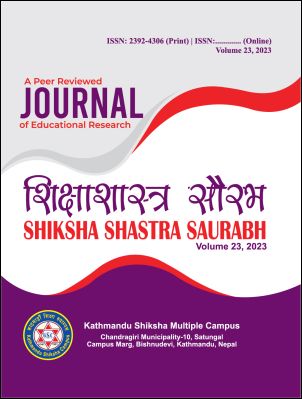Women, Nature, and Subservience: An Eco-feminist Study of Kalidas’ Meghadoot
DOI:
https://doi.org/10.3126/sss.v23i1.51930Keywords:
Eco-feminism, ecology, eco-criticism, dualism patriarchy, cultureAbstract
The article aims to analyze the connections between women and nature in Kalidas’ Meghadoot by using an eco-feminist approach. The paper argues that Kalidasa depicts women and nature as equally subservient to men in the ancient patriarchal society, and his purpose in doing so is to foreground the need to equate women and nature and assert their equality with that of men. As a theory, ecofeminism tends to equate women and nature, particularly in the fact that both face domination and exploitation at the hands of men. The eco-feminist critics believe that the issues of women and ecology are interrelated. To deal with this concept the papers borrow theoretical insights from Warren, Miles, and Vandhana Shiva. The indicates that nature and women are represented as alike in Meghadoot, as both are treated as feminine and exploited by patriarchal society. The human can live a naturally happy life on earth if the hierarchy between males and females is abolished. Revering women also connotes due respect for nature, and this inspires
the male to love nature as a mother. Through this literary work, the poet Kalidasa intends to show the significance of the idea of equality to maintain harmony among men, women, and nature.
Downloads
Downloads
Published
How to Cite
Issue
Section
License
© Research Management Cell (RMC), Kathmandu Shiksha Campus

